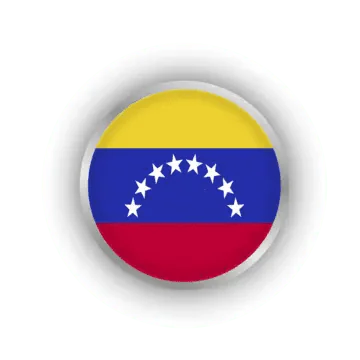On Friday, Venezuelan Foreign Minister Yvan Gil reiterated that any foreign military aggression against his country would have major repercussions across Latin America and the Caribbean.
During his remarks at the “Parliamentary Meeting of the Greater Caribbean in Defense of Peace,” Gil emphasized that Caribbean nations would be the first to suffer the consequences of U.S. military actions against the Bolivarian Revolution.
He reminded Guyana, Trinidad and Tobago, and other U.S.-aligned governments that they “would not escape” the fallout of an intervention or a rupture of peace in the Caribbean.
Gil said that the Venezuelan people possess a strong historical, patriotic, and sovereign spirit, which has allowed the Bolivarian Revolution to consolidate a civilian, military, and police unity capable of confronting any geopolitical challenge.
The Venezuelan diplomat added that his country will continue along the path of the Bolivarian Revolution under any circumstance, as it has done successfully for the past 26 years in its struggle against the United States and its European allies.
Venezuela To Strip Citizenship from Far-Right Activists Over Call for Foreign Invasion
On Friday, Venezuelan Interior Ministry asked the Supreme Tribunal of Justice (TSJ) to strip far-right activist Yon Goicoechea of his nationality for calling for a foreign invasion.
Previously, he made a public call for cooperation with foreign forces for the military occupation of Venezuela. That came at a time when the United States maintains a naval and air deployment in the Caribbean Sea that Caracas views as an attempt to remove President Nicolas Maduro from power.
Goicochea also called for the “persecution and extermination” of security officials, members of the Bolivarian National Armed Forces (FANB), and other citizens who are part of popular movements and organizations.
On Oct. 24, President Nicolas Maduro filed a request with the TSJ to strip far-right activist Leopoldo Lopez of his nationality. On several occasions, this opposition politician has also called for a military invasion and promoted an economic blockade on his country.
Caribbean Lawmakers Oppose U.S. Military Threats Against Venezuela
On Friday, legislators from several countries gathered in Caracas to take part in the “Parliamentary Meeting of the Greater Caribbean in Defense of Peace.”
The initiative seeks to coordinate efforts to defend the region’s sovereignty and stability amid the threat of U.S. military aggression against Venezuela. It will also examine the possibilities of deploying a “parliamentary diplomacy” in the service of peace, sovereignty, equality, and freedom.
“While the fascists insist on imposing their neocolonial thesis, we will remain firm in preserving the right to peace, to be free, and to be sovereign forever,” the organizers of the meeting said.
In his welcoming speech, Venezuelan National Assembly President Jorge Rodriguez emphasized that the presence of U.S. forces in the Caribbean poses a threat not only to Venezuela but to all of Latin America.
“They are promoting an action in which it seems natural to threaten the sovereignty of countries and the legitimate activities of each nation… What the U.S. is doing to control the trafficking of illicit substances within its own territory, where the world’s highest cocaine consumption is concentrated?” he asked.
Venezuela Unveils Plan for First Domestically Designed Mini-Satellite
Venezuelan President Nicolás Maduro has outlined plans to accelerate the country’s scientific and technological development, unveiling a project to design and launch Venezuela’s first domestically built mini-satellite. The announcement came during the First International Space Congress in Caracas, held to mark the 18th anniversary of the Bolivarian Agency for Space Activities (ABAE).
Maduro said the new initiative will be carried out jointly by the Military Scientific Council, the ABAE, and the Great Mission for Science, Technology and Innovation “Humberto Fernández Morán.”
“All efforts have been approved to pursue the creation of Venezuela’s first mini-satellite. It’s a wonderful idea. And from the mini, we will later move on to the maxi,” the president said.
Venezuela previously launched three satellites in cooperation with China — Simón Bolívar, Francisco de Miranda, and Antonio José de Sucre. The first two have completed their service life, while the latter remains operational.
President Maduro urged the people of Trinidad and Tobago to reject U.S. war
The president of Venezuela, Nicolás Maduro, sent a message of brotherhood to the inhabitants of Trinidad and Tobago on Wednesday: “we are brothers, let’s unite for peace, do not allow the gringos to enter a war in the Caribbean.” The message comes in response to the government of Prime Minister Kamla Persad-Bissessar’s adherence to a plan of US aggression.
The president referred to the mobilizations of the Venezuelan people in favor of regional peace: “The message was one of unity. We sent a tremendous message and it arrived. We want good neighborliness.”
At the same time, the head of state condemned the plans devised by Washington: “Imperialism comes and sows weeds, intrigue, hatred to put bordering peoples, peoples who have lived together in peace all their lives, to put them to fight.”
In this sense, the head of state rejected the plan that US intelligence intended to execute: “The CIA itself, with all the evil that characterizes them, was going to attack the United States’ own ships… Who were they going to blame? What do you think, if a gringo ship appeared exploding over there in Trinidad and Tobago waters, who were they going to blame? And why would they blame Venezuela, to justify an escalation and a confrontation between brother peoples,” he said.



